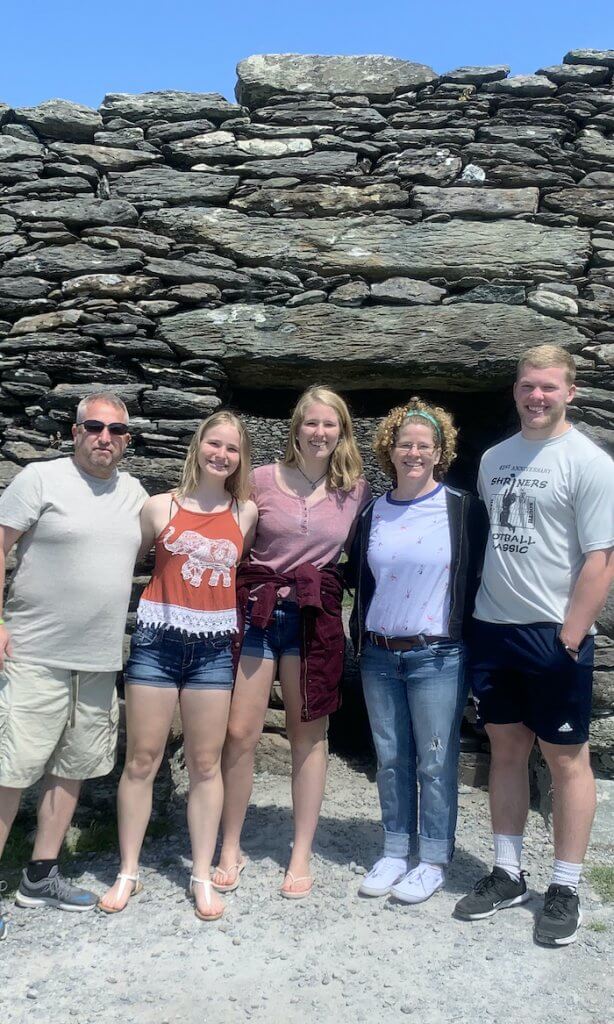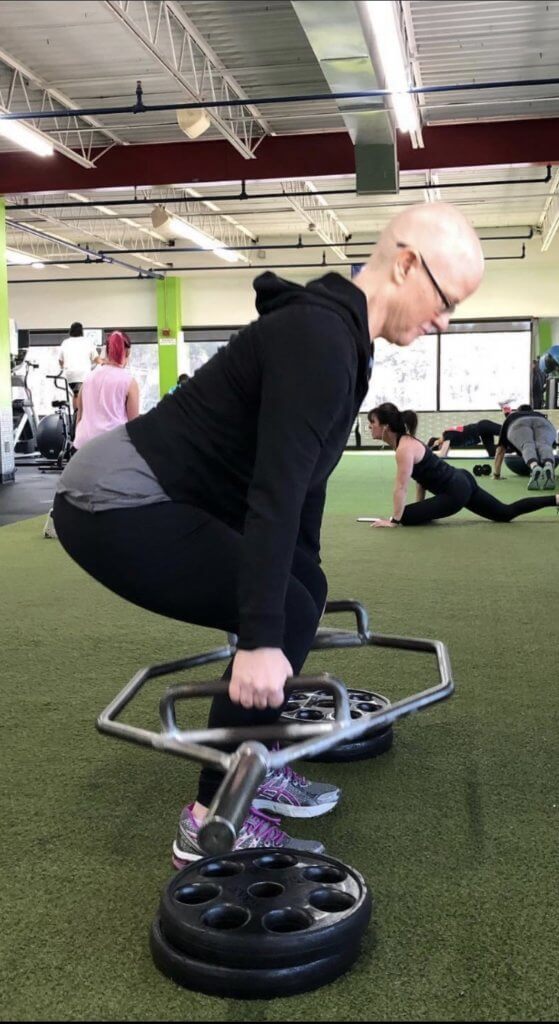Tiffany “Tiff” Trant couldn’t help but smile. All three of her children were home, and the family was deciding on dinner and a group activity. They thought about working on a puzzle, sitting down for their reoccurring poker game, or just spending the night talking.
These simple pleasures have gained new meaning ever since Trant received a diagnosis of non-Hodgkin lymphoma. Although she initially experienced several setbacks in her treatment, Trant recently joined a clinical trial testing an innovative treatment called CAR T-cell therapy. Today, she is in remission, and enjoying every second.
“I’m not waiting for the big moments, but rather enjoying the little moments every day,” she says.
The diagnosis, then a plan
In the spring of 2015, a then 45-year-old Trant would have told you she was in the best shape of her life. The middle school speech therapist was eating healthy, exercising regularly, and training for her first ever Spartan Race — an obstacle course designed to test your strength, fortitude, and perseverance.
During her training, Trant began noticing little things that worried her. She felt bloated and had lingering pains at times, which she attributed to changes in her diet or working out. When she saw her primary care physician for her yearly checkup, she learned it was more serious than that: Trant’s spleen and liver were enlarged, which led to a series of scans, blood tests, and ultimately a bone marrow biopsy.

Finally, Trant was diagnosed with follicular non-Hodgkin lymphoma, a slow growing form of cancer that begins in the body’s immune system.
Trant was referred to Philippe Armand, MD, PhD, chief of the Division of Lymphoma in the Hematologic Oncology Treatment Center at Dana-Farber/Brigham and Women’s Cancer Center (DF/BWCC). Armand explained that while the cancer was not curable, it was highly treatable, and there were many options available for Trant.
“I wasn’t worried at the time,” she recalls. “I knew what I was up against, and I’ve always had complete trust and confidence in Dr. Armand.”
Setbacks at first
Trant instantly began a chemotherapy regimen in December 2015, and soon was in remission. However, it didn’t last nearly as long as anyone hoped, and by 2017, her cancer had returned.
This time, Trant would undergo more chemotherapy as well as an autologous stem cell transplant, which allowed her team to give her very high doses of chemotherapy. This more strenuous regimen would increase the chances of killing the cancer cells, while the ensuing transplant would allow her bone marrow to recover and produce new blood cells. Every stem cell transplant carries a degree of risk of severe complications, although the risk was felt to be very low for Trant. Unfortunately, that is exactly what happened; she suffered devastating complications from the transplant, and needed multiple, lifesaving surgeries.
Thankfully, each surgery brought good news, and Trant slowly recovered. She and her family were optimistic that the worst was behind them. But again, the results of the therapy didn’t last long, and the following year her cancer returned once more.
For Trant, this relapse marked the first time she became nervous and started thinking about the “what ifs.” But she wasn’t out of options yet.
A new option
Following her latest relapse, Armand suggested Trant enroll in a clinical trial being led by Caron A. Jacobson, MD, MMSc, medical director of the Immune Effector Cell Therapy Program at DF/BWCC. The trial, known as ZUMA-5, explores the use of CAR-T cell therapy for patients with non-Hodgkin lymphoma — either follicular or marginal zone (two forms of non-Hodgkin lymphomas)— who have suffered multiple relapses.

CAR T-cell therapy works by removing some of a patient’s T cells (a type of white blood cell found in the immune system) and genetically altering them with a receptor that allows them to seek and destroy cancer cells. These engineered cells are are then infused back into the patient.
Since beginning treatment in 2019, Trant has remained in remission. Her success is not an outlier, either; out of the 146 patients in the study, 92% achieved an objective response (meaning their cancer shrank or disappeared entirely after treatment) and 76% achieved a complete response.
“We were very impressed with the magnitude of the responses, and also the durability,” says Jacobson. “This treatment has meaningfully impacted high-risk patients with these diseases.”
Lasting impression
Trant says she is incredibly thankful for all of the support she’s received from her family, friends, community, and care team at Dana-Farber.
The care Trant received during those long hours at DF/BWCC didn’t go unnoticed by her family, either. Trant’s eldest daughter is completing her nursing degree this year, citing inspiration from her mom’s care team.
Trant says she’ll continue to enjoy life’s everyday wonders, adding she’s incredibly thankful for every happy moment her team has given her.
“I wouldn’t be here if it wasn’t for my team at Dana-Farber,” explains Trant. “I’m blessed to have been a patient here and part of this community.”

Is this good fir Waldenstroms Macroglobulinemia?
Hi Josefina,
CAR T-cell therapy has not been FDA approved for Waldenstrom’s. This is currently being studied in clinical trials.
Wishing you the best,
DFCI